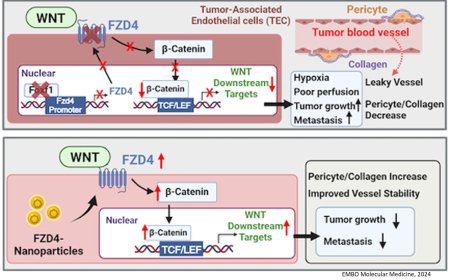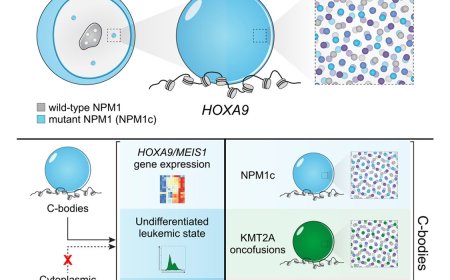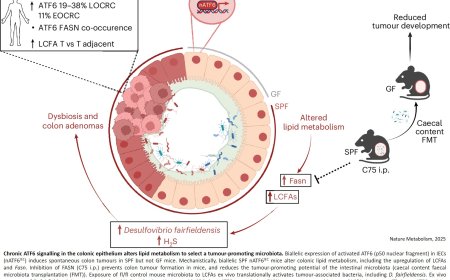Tumor-derived erythropoietin acts as an immunosuppressive switch in cancer immunity

A protein identified nearly 40 years ago for its ability to stimulate the production of red blood cells plays a surprising, critical role in dampening the immune system’s response to cancer.
Blocking the activity of the protein turns formerly “cold,” or immune-resistant, liver tumors in mice into “hot” tumors teeming with cancer-fighting immune cells. When combined with an immunotherapy that further activates these immune cells against the cancer, the treatment led to complete regression of existing liver tumors in most mice. Treated animals lived for the duration of the experiment. In contrast, control animals survived only a few weeks.
“This is a fundamental breakthrough in our understanding of how the immune system is turned off and on in cancer,” said the senior author published the work in Science. “I could not be more excited about this discovery, and I hope treatments that target the mechanism we uncovered will quickly move forward to human trials.”
Although the work was completed in mice, there are strong indications that the protein, erythropoietin or EPO, plays a similar role in many types of human cancers.
“Research from more than a decade ago has shown that giving EPO to cancer patients with anemia to stimulate red blood cell formation accelerates the growth of the tumor,” the author said.
The connection was so striking that in 2007 the Food and Drug Administration required a black box warning label on the drug cautioning against its use in people with cancers. Researchers also saw a clear correlation between patient prognosis and the levels of naturally occurring EPO and its receptor in the tumor.
“Those old reports showed clearly that the more EPO or EPOR there was in tumors, the worse off the patients were,” the author said. “But the connection between EPO and cancer immunity was never made until now. In fact, it took a long time and a lot of experiments to convince us that EPO plays a fundamental role in blocking the immune response to cancer, because EPO is so well established as a red blood cell growth factor.”
The researchers were interested in the effect on cancer growth of a common immunotherapy targeting a molecule called PD-1 on immune cells called T cells. Binding to PD-1 blocks the ability of cancer cells to dampen the activity of T cells. Anti-PD-1 therapies, including one marketed commercially as Keytruda, are routinely used to treat many types of human cancers including melanoma, Hodgkin’s lymphoma and some types of lung cancer. In some cases they have transformed patient outcomes. But a large majority of tumors, including most liver, pancreas, colon, breast and prostate cancers are resistant to the treatment.
The researchers found that, similar to what has been observed in human liver cancers, some combinations of mutations led to the development of liver tumors that were largely ignored by the immune system, rendering them immune privileged, or cold. These tumors did not shrink when the animals were treated with anti-PD-1 because few T cells were present in the tumor.
In contrast to the cold tumors, other mutations led to hot or “inflamed” tumors replete with T cells. These tumors were highly sensitive to anti-PD1 treatment, which triggered the T cells to attack the cancer.
Unexpectedly, the cold tumors displayed elevated levels of EPO when compared with hot tumors. This increase is likely caused by the oxygen-poor microenvironment — a condition called hypoxia — prevalent in cold tumors. Hypoxia induces the production of proteins in cancer cells that, in turn, ramp up the production of EPO to create more red blood cells to combat low oxygen levels.
“Hypoxia in tumors has been studied for decades,” the author said. “It just didn’t dawn on anyone, including me, that EPO could be doing anything in this context other than serving as a red blood cell growth factor.”
Curious, the researchers turned to existing databases to confirm that elevated levels of EPO are correlated with poorer survival of people with cancers of the liver, kidney, breast, colon and skin. They then tinkered with the ability of the tumor cells to make EPO and were surprised at what happened in the animals’ liver tumors.
They found that mutations that had led to the development of cold tumors instead caused hot tumors when the tumors were modified to be unable to make EPO. Conversely, hot tumors that had previously been successfully eradicated by the immune system thrived when they were engineered to make elevated levels of EPO.
Further exhaustive research showed that, in cold tumors, the tumor cells make and secrete EPO, which binds to receptors on the surface of immune cells called macrophages. The macrophages then switch to an immunosuppressive role, shooing away cancer-killing T cells and tamping down their activity.
The importance of this EPO-moderated crosstalk between tumor cells and macrophages showed clearly when the researchers studied the combinatorial effect of simultaneously blocking the EPO signaling pathway and anti-PD-1 pathway.
In those experiments, no mice with cold liver tumors that were treated with control or with anti-PD-1 lived more than eight weeks after tumor induction. In contrast, 40% of mice with macrophages unable to make the EPO receptor lived for 18 weeks after tumor induction, when the experiment was terminated. When anti-PD-1 treatment was given to mice lacking the EPO receptor, all animals lived for the duration of the experiment.
“It’s simple,” the author said. “If you remove this EPO signaling, either by lowering the hormone levels or by blocking the receptors on the macrophages, you don’t just get a reduction in tumor growth, you get tumor regression along with sensitivity to anti-PD-1treatment.”
The researchers are now designing treatments targeting EPO signaling in human cancers. Non-specifically targeting the EPO protein could cause anemia, which the author speculates might be an acceptable trade-off for an effective cancer therapy. An alternative approach is to selectively block the EPO receptors on the surfaces of macrophages in the cancer.
“I continue to be amazed by this finding,” the author said. “Not every tumor is going to respond in the same way, but I’m very optimistic that this discovery will lead to powerful new cancer therapies.”













